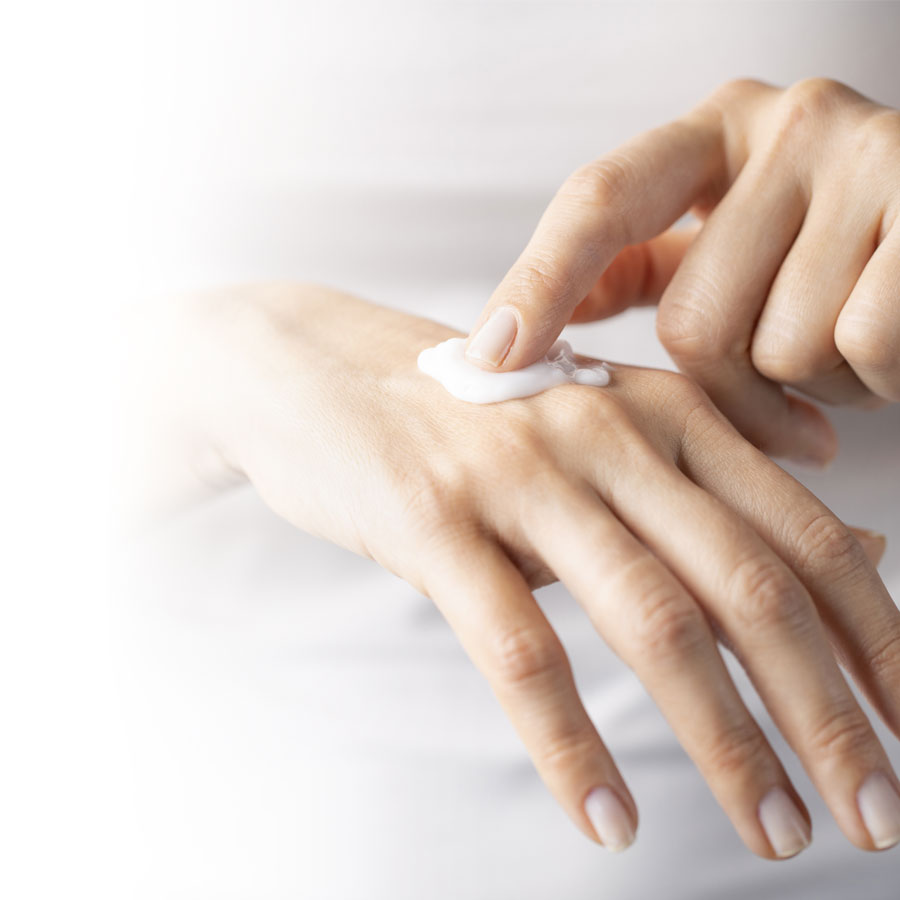The news of a cancer brings many disruptions that require a great deal of adjustment... especially when it comes to skin care.
Taking care of yourself... and your skin
It is well known that cancer and its treatments can have repercussions on physical appearance and make the skin more fragile. Skin often needs special care and attention. Isn't taking care of your skin a wonderful way to take care of yourself in difficult times?
Even when the treatments are over, it is important to continue to pamper it. The problems that were experienced along the way do not disappear overnight. The body needs to recover and this may take some time. That said, good skin care should be a lifelong routine!
The effects of treatments on the skin
Several types of cancer-fighting therapies (chemotherapy, radiation therapy, targeted or biological therapy, etc.) can affect the skin. For example, chemotherapy works primarily on rapidly renewing cells, such as cancer cells. The problem is that its effects extend beyond the area being treated to other areas of the body. This is one of the reasons for its side effects.
Cancer treatments can therefore affect the skin, hair and nails, which are made up of rapidly renewing cells. The frequency, nature and severity of adverse effects to the skin vary greatly from person to person (and within the same individual, depending on the time period). This depends on several factors, including the choice of treatment, the doses administered, individual sensitivity, skin type, etc.
During treatment, the skin may become very dry and thinner. Other examples of skin events related to cancer treatments include:
- itching
- irritation and redness
- tightness, burning sensation or pain
- pigmentation changes (white, brownish, purplish spots, etc.)
- rashes similar to acne, hives or eczema
- hand-foot syndrome
- photosensitivity
- infections
- etc.
These adverse effects may be of greater concern to many. There are a number of ways in which to try to mitigate or eliminate them.
Lifestyle habits
Did you know that your lifestyle habits can affect the appearance and health of your skin? For example, smoking is an enemy of your skin and your overall health. In addition to wreaking havoc on the skin, cigarette smoke weakens the immune system. People with cancer are definitely better off not smoking.
Other good habits can help keep your skin healthy. Here are some tips to help you do this:
- Drink plenty of water; make it your main drink.
- Eat a healthy, balanced diet.
- Exercise if possible, taking into account your abilities and limitations.
- Drink alcohol in moderation.
- Avoid excessive exposure to sunlight.
- Avoid using water in the shower that is too hot, as well as long, hot baths.
- When drying your skin afterwards, pat it gently with a clean towel. Do not rub it vigorously.
- Avoid contact with objects or products that irritate the skin (clothing, latex gloves, household products, etc.).
- Avoid scratching, even when it is very itchy
Skin care
Here are a few tips on how to pamper your skin.
- When buying skin care products, look for quality. Choose formulations designed for very sensitive skin, free of fragrances and other unnecessary agents.
- Wash your skin with a gentle cleanser without scrubbing too hard, then rinse well. If you use makeup, remove it thoroughly with a milk or micellar water and cotton pad before cleansing.
- Wash your skin with a gentle cleanser without scrubbing too hard, then rinse well. If you use makeup, remove it thoroughly with a milk or micellar water and cotton pad before cleansing.
- Always use an effective sunscreen with an SPF of at least 50 before going out in the sun. Apply it to your face and body at least 20 minutes before exposure and then every two hours.
- Keep your skin well hydrated. Apply a moisturizer in the form of a balm or cream regularly. Shea butter or ceramide-based products are good choices.
Professional expertise
Before starting cancer treatment, ask the doctor, nurse or pharmacist in charge about possible side effects to the skin. Make sure you know what to do to manage them. During your treatments, notify your healthcare team as soon as you notice any skin problems. Most can be managed at home with the appropriate care.
The pharmacist is an accessible healthcare professional who can help you deal with the side effects of your treatments. Additionally, cosmetic teams at the pharmacy can advise you on the best products to pamper your skin. Consult them as often as necessary.
In some beauty centers, there are estheticians trained to meet the specific needs of people with cancer, both physically and emotionally. Additionally, a good massage can do a world of good with its relaxing effect.
While you are undergoing treatment, why not include professional skin care and massage therapy in your treatment plan? You will leave each session feeling rested and energized and, over time, you will notice the benefits to your skin... and to your well-being. Ask your health care team about the resources available to you.
Don't hesitate to speak to your pharmacist for additional information about the side effects of cancer treatments.

